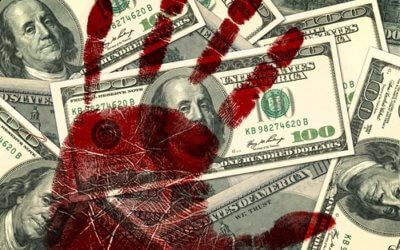Today, there are many definitions, and the concept of leadership has changed over the last seventy years. However, I think the adage that “Great leaders are forged through adversity” still holds. In adversity, great leaders come to the fore as they can get their teams to outperform others during that period when everyone is struggling to achieve their goals and leave a lasting legacy. To me, the “adversity” qualifier is like Warren Buffett’s saying about you don’t know who is swimming naked until the tide goes out; well, adversity is the tide going out.
So, what defines a great leader? Let’s start with the things that don’t.
- Leadership has nothing to do with seniority or one’s position in the hierarchy of a company. In most cases, people are promoted to leadership positions because of tenure or technical skills; leadership ability is rarely considered.
- Leadership has nothing to do with titles. Just because you have a C-level title doesn’t automatically make you a “leader,” and you don’t need a title to lead. A great example is Greta Thunberg who has become a leader but without title or seniority.
- Leadership has nothing to do with personal attributes. While people often associate “leader” with a domineering, take-charge charismatic individual, leadership isn’t an adjective.
- Leadership isn’t management. This is the big one. Leadership and management are not synonymous; managers manage things. Leaders lead people. Given the above qualifiers for what leadership is not, some definitions try to capture it but fail.
“The only definition of a leader is someone who has followers.”
“Leadership is influence – nothing more, nothing less.” This sounds good, but what is the source of influence? If it the leader’s position, e.g., the CEO or the power to cause harm, e.g., your kidnapper, I wouldn’t define it as leadership.
“Leadership is the capacity to translate vision into reality.” Many can translate a vision into reality. An architect or a builder? A painter or sculptor? But I wouldn’t define them as leaders because there are no “others” that they are leading.
Maybe looking at the traits of great, leaders we can better come to a definition. What are the traits of great leaders?
Acknowledge people’s fears, then encourage resolve.
The first part is empathy. While this is a personal attribute, which is excluded under the definitions above, I believe without it, you cannot be a great leader because it enables so many of the key attributes. By acknowledging people’s fears, we don’t cover up the crisis and deny its existence. But with the fears on the table, we can then address them and encourage resolve to overcome them. In a crisis, everyone knows that things are bad, but much of the energy and fear exists because of the unknown. Being honest about the situation and facing it allows people to come to grips with the unknown, which enables them to move forward.
Give people a role and purpose.
Real leaders charge individuals to act in service of the broader community. They give people jobs to do. But I would add to that; they frame everything within the outcome being sought so that the jobs are not mindless but have a purpose which they can see. It is not about the leader but the great community. I think Shackleton was a great example of this, but I always fall back to David Marquette’s Turn the Ship around.
Inspire others to see opportunities in everything.
There is no playbook in a crisis, so it is up to the leader to be open-minded enough to find possibilities that will help serve their community through their discussions with their team and their data.
Be flexible to anticipate the unexpected.
As said above, there is no playbook in a crisis, and leaders must quickly get comfortable with widespread ambiguity and chaos. To get out in front of the crisis they cannot be fixed on any one route but need to see around, beneath, and beyond what they seek. To fully succeed here, they need to get their followers to be flexible, which requires them to understand the greater goal and their role in it and use its core values as their guidelines.
Manage everyone’s energy and emotion, including their own.
Crises are exhausting, taking a toll on all of us and possibly leading to burnout. A critical function of leadership is to keep your finger on the pulse of your people’s energy and emotions and respond as needed.
Unleash their team’s passionate pursuits.
Passion is what drives experimentation and learning. If everyone is passionate about the outcome, they will seek new ways of addressing the crisis, and great discoveries will be made. Not only will passion drive greater discovery, but it creates more energy. The best example I can think of Apollo 13.
Legacies are born during crises. While leaders are most respected based on how well they reacted and responded to all the chaos and uncertainty around them, I believe the key measure is how much of a legacy they leave. Does the organization continue to thrive when they are gone? Do the others in the organization go on to greater and better things? Are the behaviors that enabled it to survive and thrive now part of the company’s DNA. There are many leaders who get the organization through a crisis but leave no lasting mark. I would argue, that they are not great leaders.
So, in conclusion, I would define Leadership as, “A process of social influence, which maximizes the efforts of others, towards the achievement of a goal, and leaves a lasting legacy.”
The key things about this definition are:
- Leadership stems from social influence, not authority or power
- Leadership requires others, and that implies they don’t need to be “direct reports”
- No mention of personality traits, attributes, or even a title; there are many styles, many paths, to effective leadership
- It identifies the maximization of “efforts”
- It includes a goal, not influence with no intended outcome
- Finally, it ties in with a lasting legacy.
Not everyone will become a great leader, but everyone can become a better leader and your organization will thank you. So, start your journey today and if you need help, call me.
Copyright (c) 2020, Marc A. Borrelli
Recent Posts
Align and Thrive: The Importance of Organizational Alignment and Agility
Discover the importance of organizational alignment and agility in this blog post. Learn how establishing a strong CORE and building a strategy around it can lead to sustainable growth and success. Find out how alignment and agility empower your organization to thrive in an ever-changing business landscape.
How to Achieve Smart Time Management: 10 Tips for Busy Professionals
When you are a busy professional running your own business, it can often feel like there aren’t enough hours in the day to accomplish everything. Being strategic with your time is the best (and possibly the only) way to achieve all of your daily tasks. If you are...
5 Strategic Leadership Skills Every Manager Needs
So often, people view leadership as a talent: you’re either born with this quality or you’re not. However, this is not always the case! In reality, good leadership is made up of skills, and anyone can learn how to improve. Some people may pick up leadership attributes...
How the Sellability Score is Calculated: The Ultimate Guide
Do you have questions about how to calculate your business’s sellability score? Whether you’re looking to sell your business in the near future or years from now, understanding your sellability score will help you thrive. The sellability score identifies the...
The Top 5 Benefits of the Entrepreneurial Operating System
As an entrepreneur running your own business, you know there are bumps in the road and struggles that both you and your business will face over time. However, with the right people and tools at your disposal, you can anticipate what’s coming, plan for it, and continue...
5 Ways to Use Email Automation to Boost Traffic
Every single business in the world wants to evolve and grow. This will happen using a variety of techniques and strategies. In 2022, digital marketing is more than a household name, and most companies will adopt at least a few ideas when long-term planning and coming...
6 Questions To Ask A Potential Business Coach Before Hiring Them
Many entrepreneurs consider executive business coaching when they start struggling on their professional path. A small business coach is an experienced professional mentor who educates, supports, and motivates entrepreneurs. They will listen to your concerns, assess...
3 Ways Proper Long Term Strategic Planning Helps Your Business
Dreams turn into goals when they have a foundation of long-term strategic planning supporting them. They become reality when the ensuing strategic implementation plan is executed properly. With Kaizen Solutions as their strategic planning consultant, small and...
What is a Peer Group, and How Can it Improve Your Career?
If you are a CEO or key executive who has come to a crossroads or crisis in your career, you'll gain valuable insights and solutions from a peer group connection more than anywhere else. But what is a peer group, and how can that statement be made with so much...
Profit and Revenue are Lousy Core Values
As I mentioned last week, I am down with COVID and tired, so spending more time reading rather than working. I read Bill Browder's Freezing Order this weekend, and I highly recommend it. However, at the end of the book, Browder says that oligarchs, autocrats, and...










